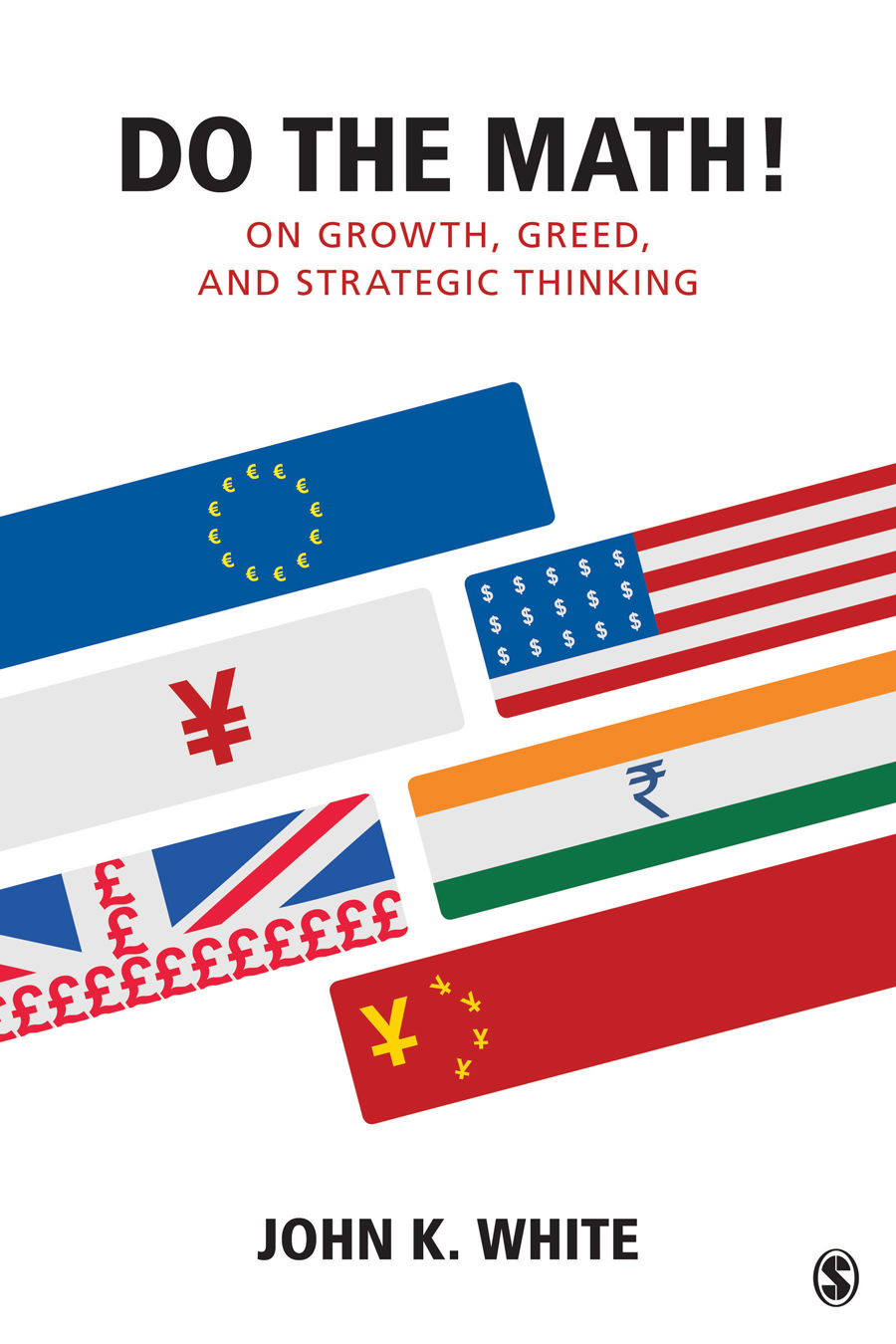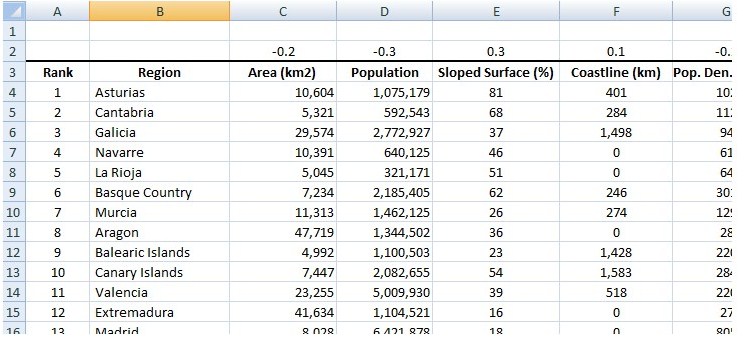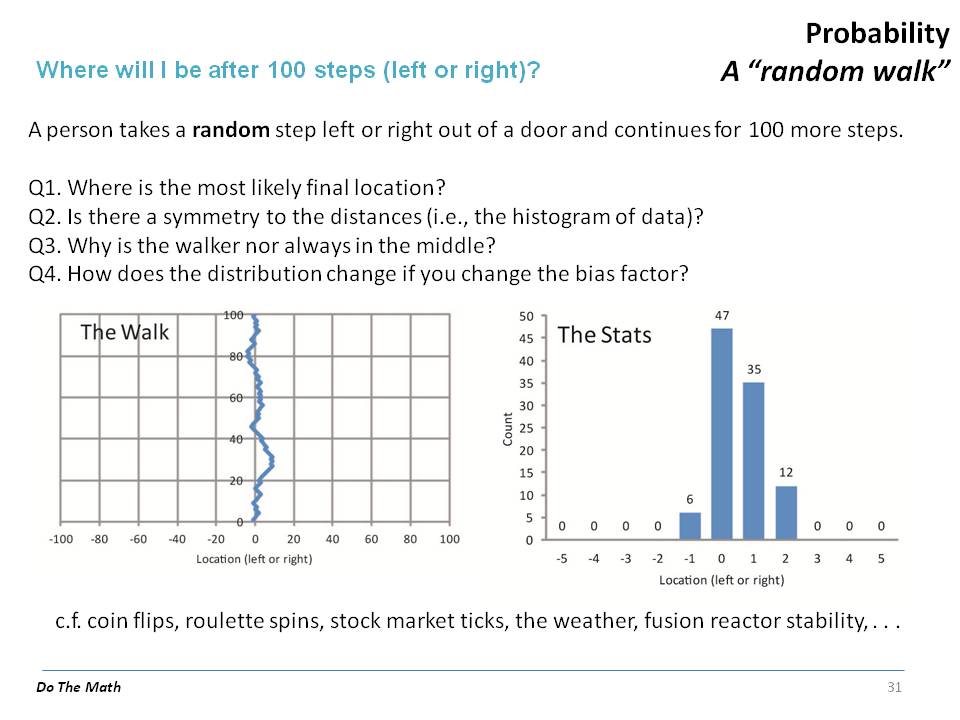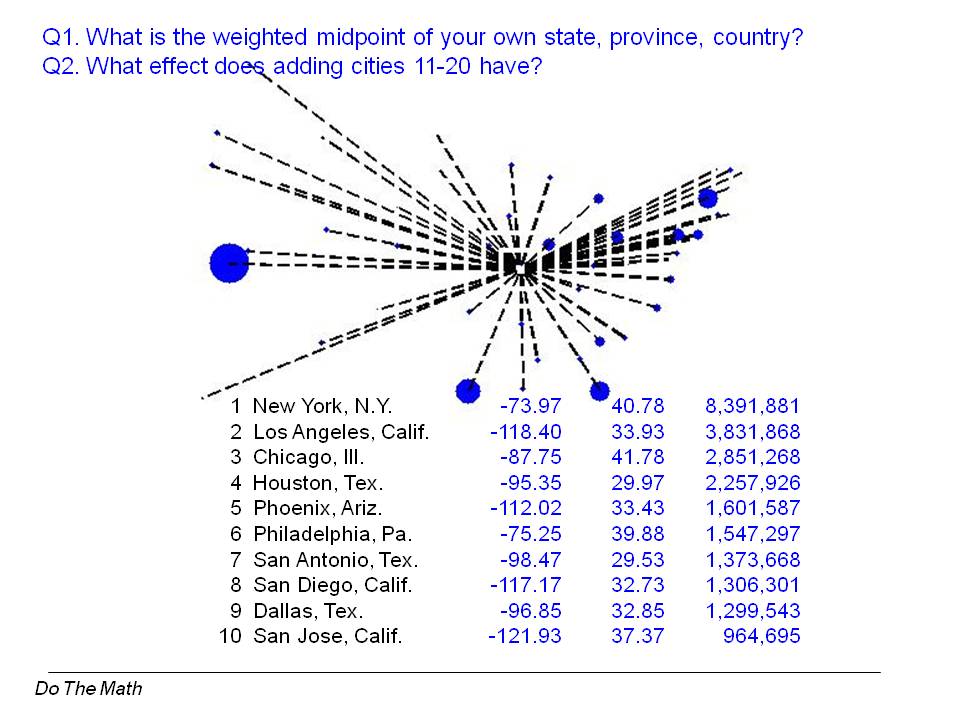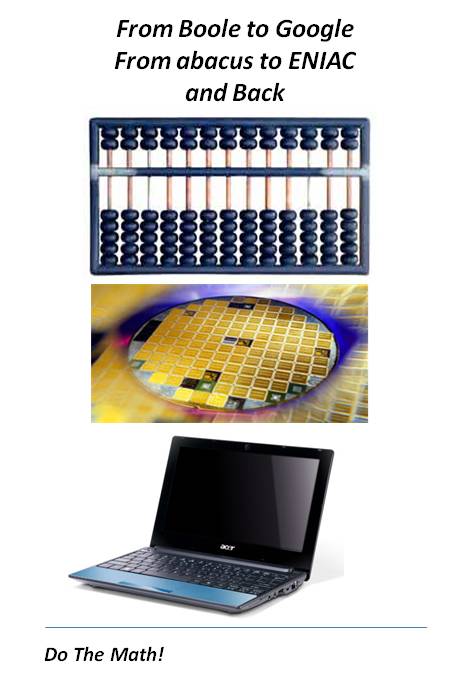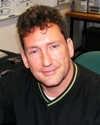Do the Math! On Growth, Greed, and Strategic Thinking (Sage, 2013)
John K. White
Softcover, 350 pages
Do the Math! is a refreshing look at mathematical concepts and moral dilemmas in the increasingly more numerate world of everyday living. Aiming to popularize and inform, Do the Math does for numbers what Eats, Shoots, and Leaves does for words.
To learn more about everyday mathematics and the number-filled world around us, check out the downloads below.
